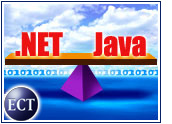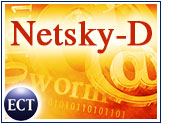
Microsoft’s attack against Linux desktop software provider Lindows.com has taken yet another turn, with Lindows legal counsel filing a motion Monday in U.S. Federal Court seeking to stop the flood of global trademark lawsuits Microsoft has launched in a host of foreign countries over the last several months.
Daniel R. Harris, an attorney with Clifford Chance U.S. and lead trial counsel for Lindows.com, told the E-Commerce Times that Lindows hopes to have a hearing with Chief U.S. District Court Judge John C. Coughenour before March 30th. On that date, Microsoft has a hearing scheduled in Amsterdam where it will seek to have Lindows fined approximately 100,000 euros per day for trademark infringement unless the company blocks its Web site from the Benelux countries — The Netherlands, Belgium and Luxembourg.
“There’s no way technologically to do that without shutting down our Web site entirely,” Harris said. “Microsoft’s actions could set a dangerous precedent, [in which it is] acceptable to pick laws and courts that best serve its purposes. It’s forum shopping on a global scale. [If you] don’t like the U.S. Federal Court system, you take your marbles elsewhere.”
Fight Belongs in U.S.
When Microsoft first went after Lindows in December 2001, Lindows had yet to release its Linux desktop operating system. Microsoft filed a preliminary injunction to shut the company down, but Judge Coughenour twice rejected the motion.
More recently, Microsoft has filed court papers to delay the trademark-infringement trial while going after Lindows in foreign courts.
“And instead of filing in Germany or Great Britain, where we have sold a fair number of copies, Microsoft files an ex parte complaint in Helsinki, Finland, where there are only 41 copies of Lindows,” Harris noted. Although the Finnish court granted Microsoft’s request, it did not demand that Lindows shut down its Web site, as the Benelux court order did.
Microsoft is seeking relief in foreign courts that has so far been refused to it in the United States, Harris explained.
“What we’re saying to Microsoft is, ‘Look, you chose the U.S. forum, so you now cannot just go somewhere else,'” he said. “The fact is that this [trademark infringement] trial would be done in the U.S. if you had not filed court papers to delay it.”
Weak Argument
Harris added that Microsoft’s contention that the Lindows name would confuse potential purchasers is laughable.
“Lindows, Windows, they rhyme! That’s about it. It’s not a commodity product. It’s not like buying a pack of mints at a checkout,” he said. “There is no way of purchasing Lindows except on the Lindows Web site with a credit card. It takes some amount of sophistication to get access. In any event, those who are interested in Lindows [as an OS] either can’t afford Microsoft products or have no interest in them to begin with.”
Moreover, Microsoft’s arguments for protecting its trademark against Lindows contradict the arguments the company used in its successful defense against Apple in the early days of Windows.
“Windows has been a generic term for a windowing system that has been used on PCs since Xerox PARC, and these arguments have precedent from the Apple-Microsoft case,” Harris said. “But Microsoft did not disclose these arguments to the Trademark Office” when it registered the Windows trademark in 1995.
Threats and Troubles
Although it may seem as if Microsoft is overreacting in its attempt to obliterate Lindows, Forrester Research analyst Ted Schadler told the E-Commerce Times that Microsoft always seeks to aggressively protect its trademarks and will come down hard on anyone potentially infringing them.
“Look at SCO’s current problem. They are claiming property rights on Unix, but they have no track record of protecting these property rights,” Schadler said. “Most minor [infractions] are not about a particular threat at a particular time, but more about protecting your land from squatters.”
Although Schadler could not comment on the legal aspects of the Microsoft-Lindows case, he said he would not have named his company Lindows.
“It’s just asking for troubles. Who needs it?” he said.
At the same time, Schadler said he is not surprised that Microsoft feels increasingly threatened by Linux. Already, Linux has won a big chunk of the server operating system market. And Forrester Research recently released data illustrating that on the corporate desktop, at least, Linux has been making some fairly aggressive strides.













































give me a break, is it possible that you are siding with microsock; and that doesnt even rhyme.
I mean look at these guys, they have crushed or bought everyone that even remotely was associated.
And now that a person who i might add, thought of a name that hmmm… well he didn’t think of, wants now the rights too.
Is it possible that someone has a chip on his shoulder?
Where in gods name did it come from?